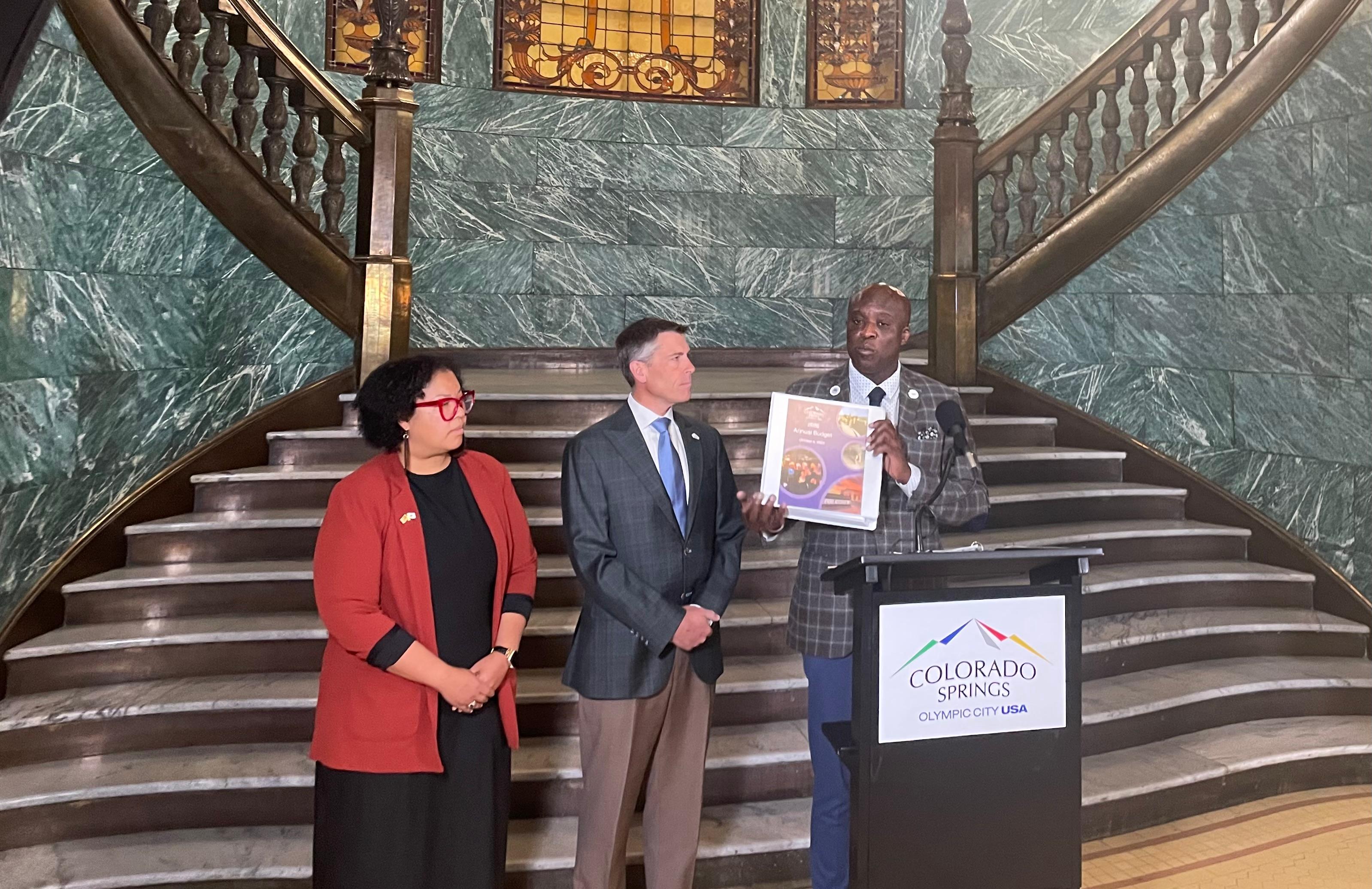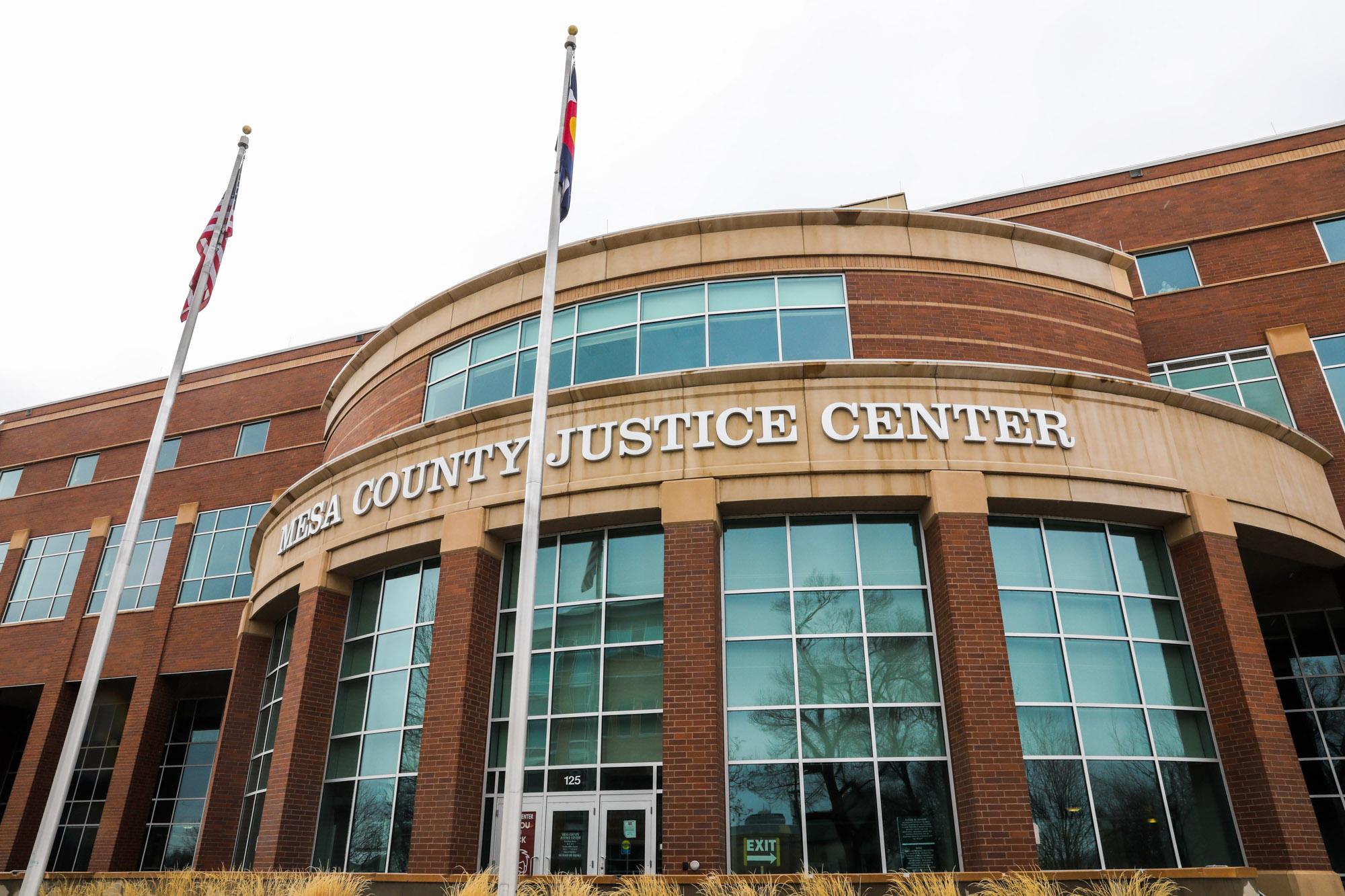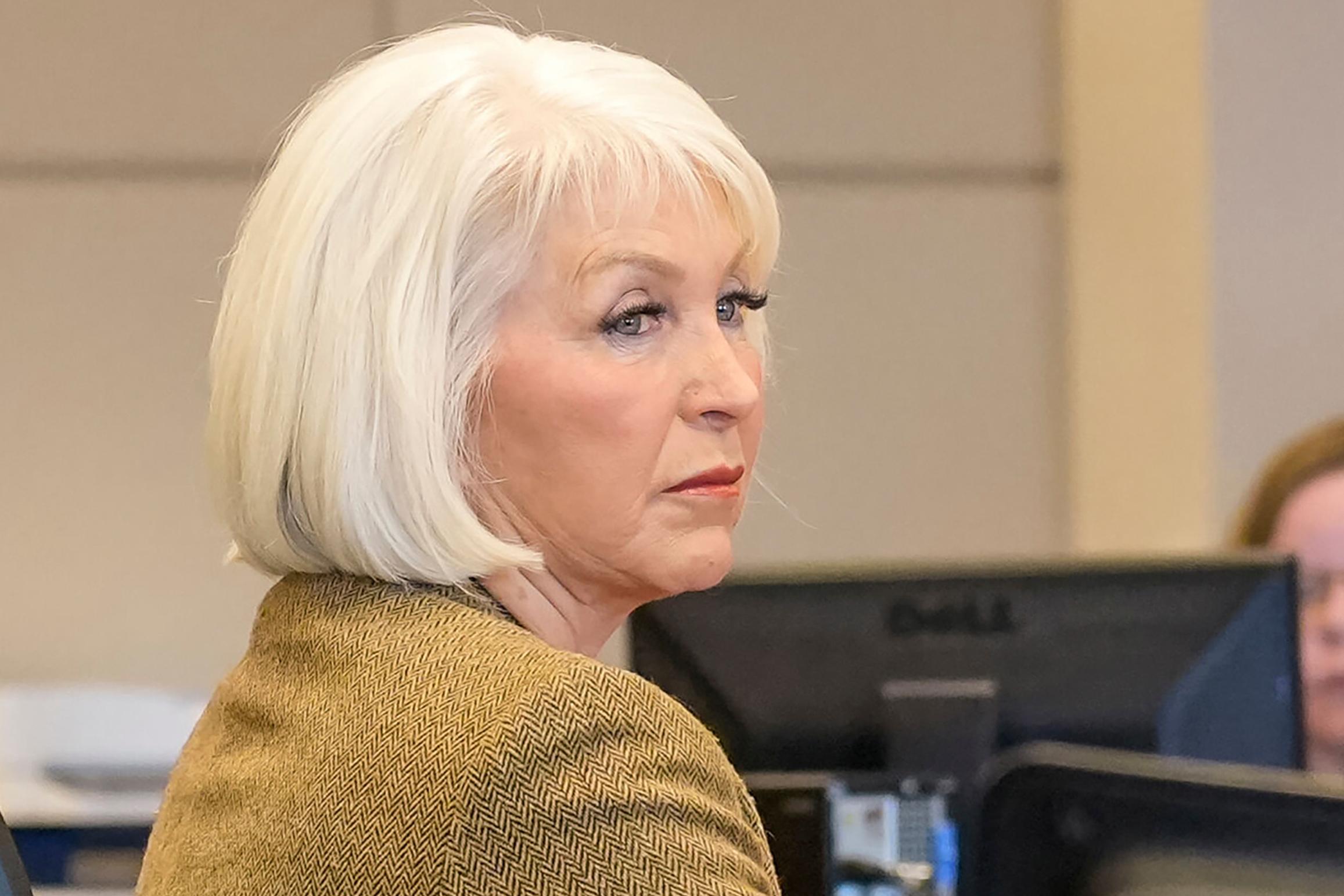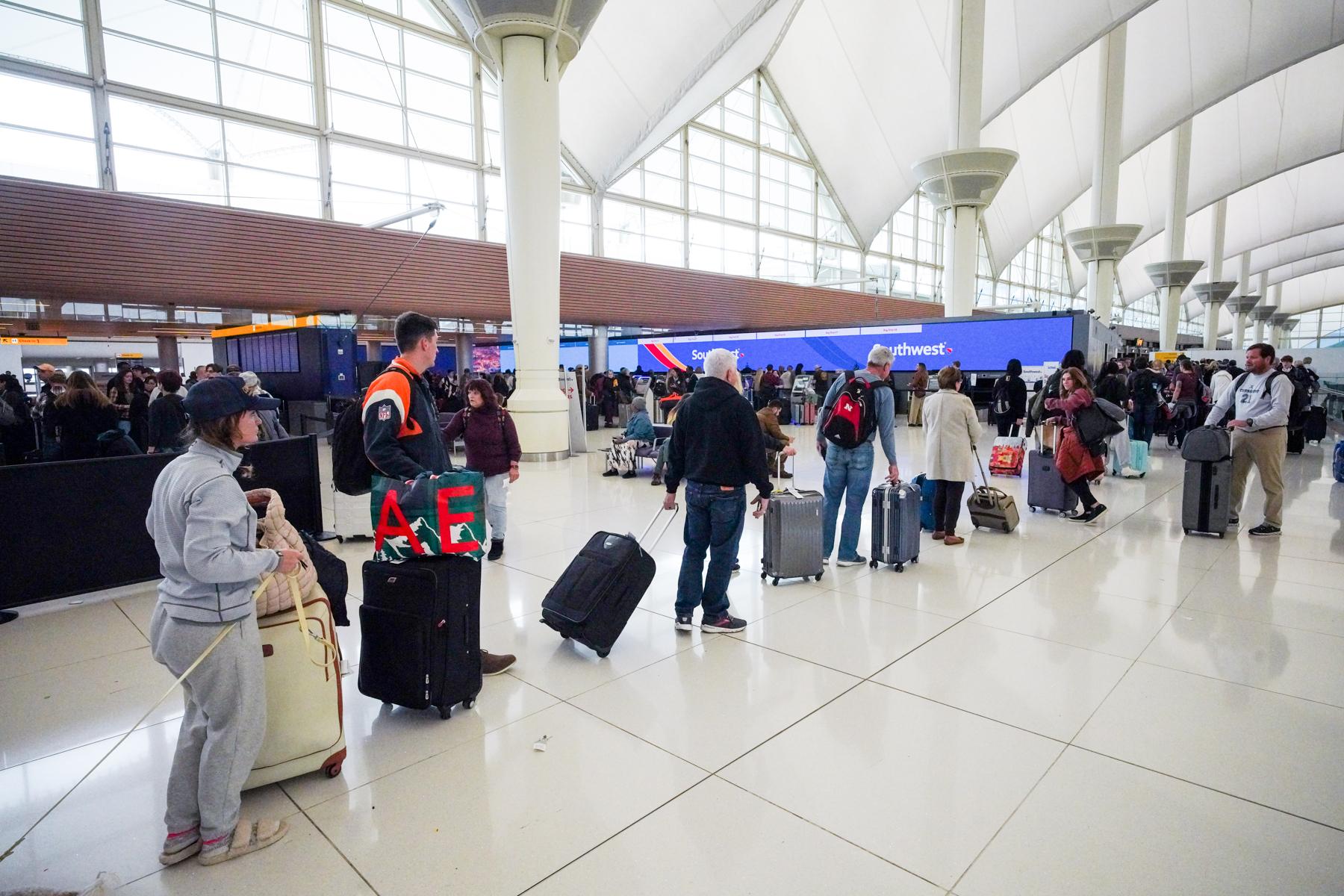
On Wednesday, Colorado Springs City Council gave its initial thumbs up to Mayor Yemi Mobolade’s proposed budget — with some suggestions.
The budget forecasts small growth in revenues next year from 2025, and divvies out for the first time around $4.1 million in actual and expected tax revenues on recently legalized recreational marijuana in the city.
The marijuana pot
In Wednesday's budget markup session, the city council gave initial approval to the mayor's proposal to put $3.2 million of that marijuana money towards public safety, investing in new technology for police and a training academy for the fire department. Council also agreed to put $700,000 toward the Downtown Clean and Safe program and $200,000 toward mental health services. Voter-approved ballot language around the marijuana sales tax requires the money to be spent between these three things.
There has been contention over how the money would be spent since shortly after the city started collecting the money in April. Over the summer, city council overrode a veto from the mayor and codified recommendations to the mayor as to how to spend the money in the retail marijuana fund. Since then, council members and the mayor's office have blamed each other for a lack of communication and cooperation around how to use the money. Council members said they received a lot of information “last minute” and that the mayor's office did not communicate with the council properly.
Councilman David Leinweber said at Wednesday's meeting that the city council should have advised the mayor on how to spend the money, not the other way around.
“Here's a case in point where this was dumped on us,” Leinweber said. “So it's really kind of irking me right now that I feel like there's a shell game going on here. And I'm just irritated that, again, the ballot language said city council (decides). And I'm just trying to live up to that.”
City council gave this aspect of the budget an 8-1 thumbs up approval; Councilman Brian Risley was the single no vote.
Concerns over the economy
Projected revenues from the city's finance department dictate the overall size of the budget for next year. Reports from the office predict a 1.5 percent growth in revenue from the expected 2025 revenue. Those 2025 revenues are expected to come in around $11 million below the office's predictions, and the city took savings measures — including layoffs, furloughs, and facility closures.
Councilman Risley suggested council leave the budget and associated revenues flat.
“I just think that's a much more responsible approach than saying we're really hoping based on our best guess that it's going to go up 1.4 percent and then unfortunately not realize that and then be in the same situation in 26’ having to make unwelcome, unhappy cuts,” Risley said.
Risley and other council members said they had conversations with economist Tatiana Bailey, who said there are some indications that a further decline in the economy could be on the horizon.
“I voiced to them that I have concerns about the macroeconomic environment,” Bailey said. “I see a lot of red flags; delinquency rates are going up. In fact, auto and credit card delinquency rates are now at levels or close to levels of the Great Recession.”
The majority of the city's revenue comes from sales tax, which is sensitive to changes in the local economy.
A proposal to flatten the budget, reducing it by 1.5 percent, failed in a 3-6 vote.
Colorado Springs Chief Financial Officer Charae McDaniel said no one can predict the future, but the city's own economic analysis is indicating small growth. She said it's better for the city to wait and see what happens with the economy instead of making cuts now.
“I feel like it's actually faster to put a hiring freeze in the middle of the year because that's an immediate action we can take and it has immediate results,” McDaniel said.
Councilman Dave Donelson agreed and said the city has already made over $31 million in cuts so far.
“We are stretched very thin right now as far as code enforcement, public works, roads filling potholes, police fire,” Donelson said. “So I wouldn't want to pull the trigger on that any earlier than we have to.”
The first official vote on the budget is November 11, and the final vote is November 25.
Editor's Note: This post has been updated to reflect the correct expected first official vote on the budget.









